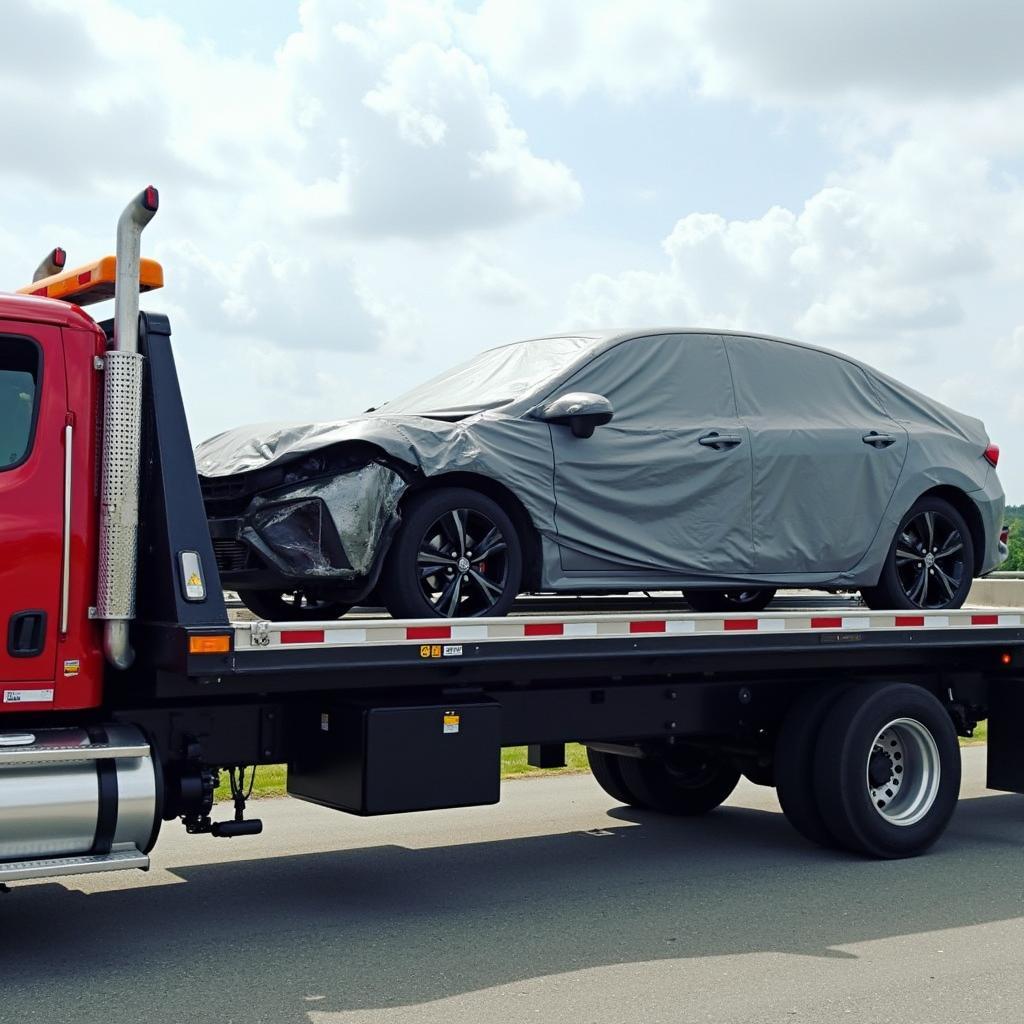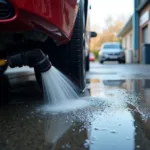You’ve likely heard whispers of “death car services” or stumbled upon the term during a late-night internet rabbit hole. It sounds ominous, like something out of a crime thriller, doesn’t it? The reality, however, is far less sensationalized but equally intriguing.
“Death car services” isn’t a widely recognized or official term. It refers to a range of services related to vehicles involved in fatal accidents or used in crimes. Think of it as the automotive equivalent of a hazmat cleanup, dealing with the aftermath of tragedies and ensuring safe handling of potentially biohazardous vehicles.
Unraveling the Services Behind the Grim Name
While the term itself might be broad, the services encompassed under “death car services” are quite specific. Here are a few examples:
- Vehicle Transportation and Storage: After a serious accident, the vehicle, often considered evidence, needs to be transported and stored securely. Specialized towing companies equipped to handle biohazards are called upon for this sensitive task.
- Biohazard Remediation: Vehicles involved in fatalities may contain blood, bodily fluids, and other biohazards. Certified professionals trained in biohazard cleanup meticulously decontaminate these vehicles, ensuring they are safe for further handling or disposal.
- Odor Removal: The aftermath of a traumatic event can leave behind persistent and deeply unsettling odors. Specialized companies utilize advanced techniques like ozone treatment to neutralize these odors, making the vehicle bearable for processing or potential future use.
- Vehicle Repair for Insurance or Resale: Depending on the extent of the damage, some “death cars” might be repaired and salvaged. This often involves extensive work, including replacing damaged parts, restoring the vehicle’s structure, and addressing any mechanical issues.
- Vehicle Disposal: If the vehicle is beyond repair or deemed too costly to salvage, it will be disposed of according to legal guidelines. This often involves dismantling the car, recycling usable parts, and scrapping the rest.
The Importance of Discretion and Respect
“Death car services” operate with the utmost discretion and sensitivity. It’s not just about handling vehicles; it’s about acknowledging the human tragedy behind the service. Professionals in this field understand the emotional weight associated with these vehicles and treat them with the utmost respect.
“The work we do is as much about compassion as it is about cleaning and restoration,” says John Smith, owner of a biohazard remediation company specializing in vehicles. “Families are going through an incredibly difficult time, and the last thing they need is additional stress or insensitivity.”
Navigating the Legal and Ethical Landscape
The handling of “death cars” is often governed by specific laws and regulations. These regulations vary by jurisdiction but often dictate how these vehicles are stored, cleaned, and ultimately disposed of. Furthermore, ethical considerations play a significant role in this field. Professionals must balance the need for thoroughness with respect for the deceased and their families.
Beyond the Grim Facade: A Necessary Service
While the term “death car services” might evoke unsettling imagery, it’s essential to recognize the vital role these services play. They ensure public safety by handling potentially hazardous materials, provide closure to grieving families, and facilitate the legal processes associated with fatal accidents.
It’s a niche industry, often operating in the shadows, but its impact on public health, safety, and the legal system is undeniable.
Finding Reputable “Death Car” Service Providers
Locating reputable service providers in this specialized field can be challenging. If you require assistance with a vehicle involved in a fatality, start by contacting your insurance company, local law enforcement, or a reputable towing company.
Remember, “death car services” play a crucial role in the aftermath of tragedies. Understanding their role and finding trustworthy providers can help navigate these difficult situations with sensitivity and respect.

